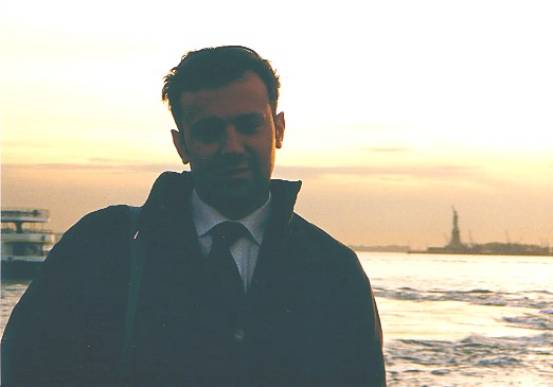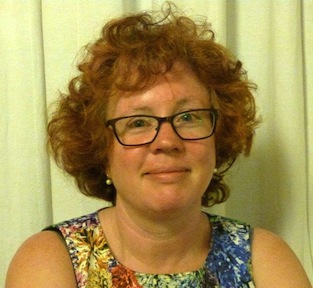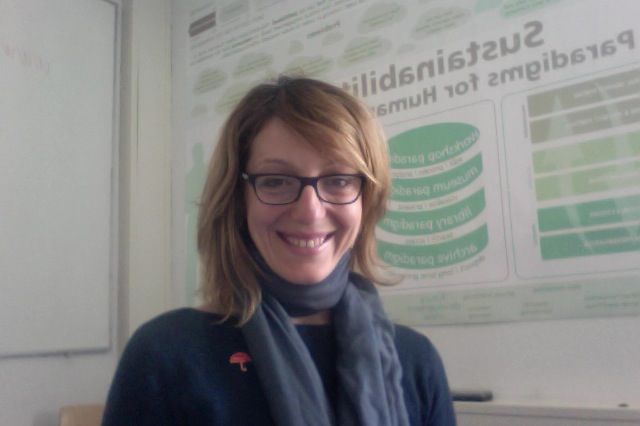Studying at the University of Verona
Here you can find information on the organisational aspects of the Programme, lecture timetables, learning activities and useful contact details for your time at the University, from enrolment to graduation.
Academic calendar
The academic calendar shows the deadlines and scheduled events that are relevant to students, teaching and technical-administrative staff of the University. Public holidays and University closures are also indicated. The academic year normally begins on 1 October each year and ends on 30 September of the following year.
Course calendar
The Academic Calendar sets out the degree programme lecture and exam timetables, as well as the relevant university closure dates..
| Period | From | To |
|---|---|---|
| I semestre | Oct 1, 2014 | Jan 10, 2015 |
| II semestre | Feb 23, 2015 | May 30, 2015 |
Exam calendar
Exam dates and rounds are managed by the relevant Foreign Languages and Literatures Teaching and Student Services Unit.
To view all the exam sessions available, please use the Exam dashboard on ESSE3.
If you forgot your login details or have problems logging in, please contact the relevant IT HelpDesk, or check the login details recovery web page.
Academic staff
 angela.alaimo@univr.it
angela.alaimo@univr.it
 birgit.alber@univr.it
birgit.alber@univr.it
 alessandro.bigardi@univr.it
alessandro.bigardi@univr.it
 tiziana.mancinelli@univr.it
tiziana.mancinelli@univr.it
 sara.paolini@univr.it
sara.paolini@univr.it
 fabioantonio.scrignoli@univr.it
fabioantonio.scrignoli@univr.it

Zaccarello Michelangelo
 michelangelo.zaccarello@univr.it
michelangelo.zaccarello@univr.it
 +39 045 802 8330
+39 045 802 8330
Study Plan
The Study Plan includes all modules, teaching and learning activities that each student will need to undertake during their time at the University.
Please select your Study Plan based on your enrollment year.
1° Year
| Modules | Credits | TAF | SSD |
|---|
2° Year activated in the A.Y. 2015/2016
| Modules | Credits | TAF | SSD |
|---|
3° Year activated in the A.Y. 2016/2017
| Modules | Credits | TAF | SSD |
|---|
| Modules | Credits | TAF | SSD |
|---|
| Modules | Credits | TAF | SSD |
|---|
| Modules | Credits | TAF | SSD |
|---|
| Modules | Credits | TAF | SSD |
|---|
Legend | Type of training activity (TTA)
TAF (Type of Educational Activity) All courses and activities are classified into different types of educational activities, indicated by a letter.
Editorial theory and methodology (2016/2017)
Teaching code
4S002899
Teacher
Coordinator
Credits
9
Language
Italian
Scientific Disciplinary Sector (SSD)
L-FIL-LET/13 - PHILOLOGY OF ITALIAN LITERATURE
Period
I SEMESTRE dal Oct 3, 2016 al Jan 21, 2017.
Learning outcomes
The course aims at providing the methodological grounds to evaluate textual transmission and build a modern critical edition; alongside with a brief history of the various forms of text production and diffusion, the course will introduce the main criteria of text reconstruction and restoration and explain their linguistic implications. The second part of the course aims at introducing the various aspects and problems related to the analysis of vernacular texts and their transmission, illustrating the main criteria of textual reconstruction and editorial technique; due attention will be paid to the complex relationship between philological reconstruction and interpretation of text, the choice of a copy-text and the different methods in granting linguistic credibility to literary works edited from non-autograph sources. Within the new digital context, and in the theoretical tradition of Anglo-American editorial theory, the course will attempt to introduce the new challenges facing textual scholars dealing with the publication of early texts, and the new role of cultural mediation that scholarly editing must take on within the framework of a greater transpoition of all textual and literary knowledge into digital form.
Program
The course is taught within a single cycle; however, its syllabus is divided into three main sections:
I parte – Istituzioni di filologia: problemi e metodi. [18 ore = 3 CFU]
A. STUSSI, Breve avviamento agli studi di filologia italiana, Bologna, Il Mulino, 2002.
B. BENTIVOGLI-P. VECCHI GALLI, Filologia italiana, Milano, B. Mondadori, 2002.
NB. I due manuali sopra indicati sono obbligatori per tutti e necessari alla preparazione dell'esame.
II parte –Edizione critica e pubblicazione digitale: vecchi problemi e nuove frontiere
Elena Pierazzo, La codifica dei testi: un'introduzione, Roma, Carocci, 2005 (e succ. edd.)
M. Zaccarello, Alcune questioni di metodo nella critica dei testi volgari, Verona, Fiorini, 2012.
III parte – Un case study estremo: l’edizione della Commedia dantesca [18 ore = 3 CFU]
The teacher will provide this section's reading syllabus (scholarly articles published in scientific journals) in PDF format during the course.
Non-attendees will also have to read:
G. INGLESE, Come si legge un'edizione critica, Roma, Carocci, 1999.
S. TIMPANARO, La genesi del metodo del Lachmann, con una presentazione e una postilla di Elio Montanari, Torino, UTET, 2003.
Examination Methods
The exam will be taken as a viva.
Type D and Type F activities
To discover all the teaching activities accredited by the foreign teaching college click here
Career prospects
Module/Programme news
News for students
There you will find information, resources and services useful during your time at the University (Student’s exam record, your study plan on ESSE3, Distance Learning courses, university email account, office forms, administrative procedures, etc.). You can log into MyUnivr with your GIA login details: only in this way will you be able to receive notification of all the notices from your teachers and your secretariat via email and soon also via the Univr app.
Student login and resources
Assegnazione tutore
Attività accreditate D/F
Calendario didattico dettagliato
Cambio lingua curriculare
Competenze informatiche
Competenze linguistiche (prima e seconda lingua)
Competenze linguistiche in triennale (terza lingua CFU F)
Compilazione del piano didattico
Corso di Lingua portoghese
Erasmus+ e altre esperienze all'estero
Linguistic training CLA
Graduation
List of theses and work experience proposals
| Stage | Research area |
|---|---|
| PROGETTO MAMBRINO Stage per bibliografia | Various topics |
Stage e tirocini
Nel piano didattico della laurea triennale in Lingue e culture per l’editoria (L11 ED) è previsto un tirocinio/stage obbligatorio (CFU 6).
Le attività di stage sono finalizzate a far acquisire allo studente una conoscenza diretta in settori di particolare interesse per l’inserimento nel mondo del lavoro e per l’acquisizione di abilità professionali specifiche.
Le attività di stage sono svolte sotto la diretta responsabilità di un singolo docente presso studi professionali, enti della pubblica amministrazione, aziende accreditate dall’Ateneo veronese.
I crediti maturati in seguito ad attività di stage saranno attribuiti secondo quanto disposto nel dettaglio dal “Regolamento d’Ateneo per il riconoscimento dei crediti maturati negli stage universitari” vigente.
- Tutte le informazioni in merito agli stage per futuri studenti sono disponibili alla pagina Stage e tirocini.
- Tutte le informazioni in merito agli stage per studenti iscritti sono pubblicate in MyUnivr - come fare per - stage e tirocini.
- Tutte le informazioni in merito agli stage per le aziende sono disponili alla pagina Stage e tirocini per azienze.
Ulteriori informazioni al seguente link https://www.univr.it/it/i-nostri-servizi/gestione-carriere-studenti-lingue-e-letterature-straniere/stage-e-tirocini-lingue-e-letterature-straniere





























